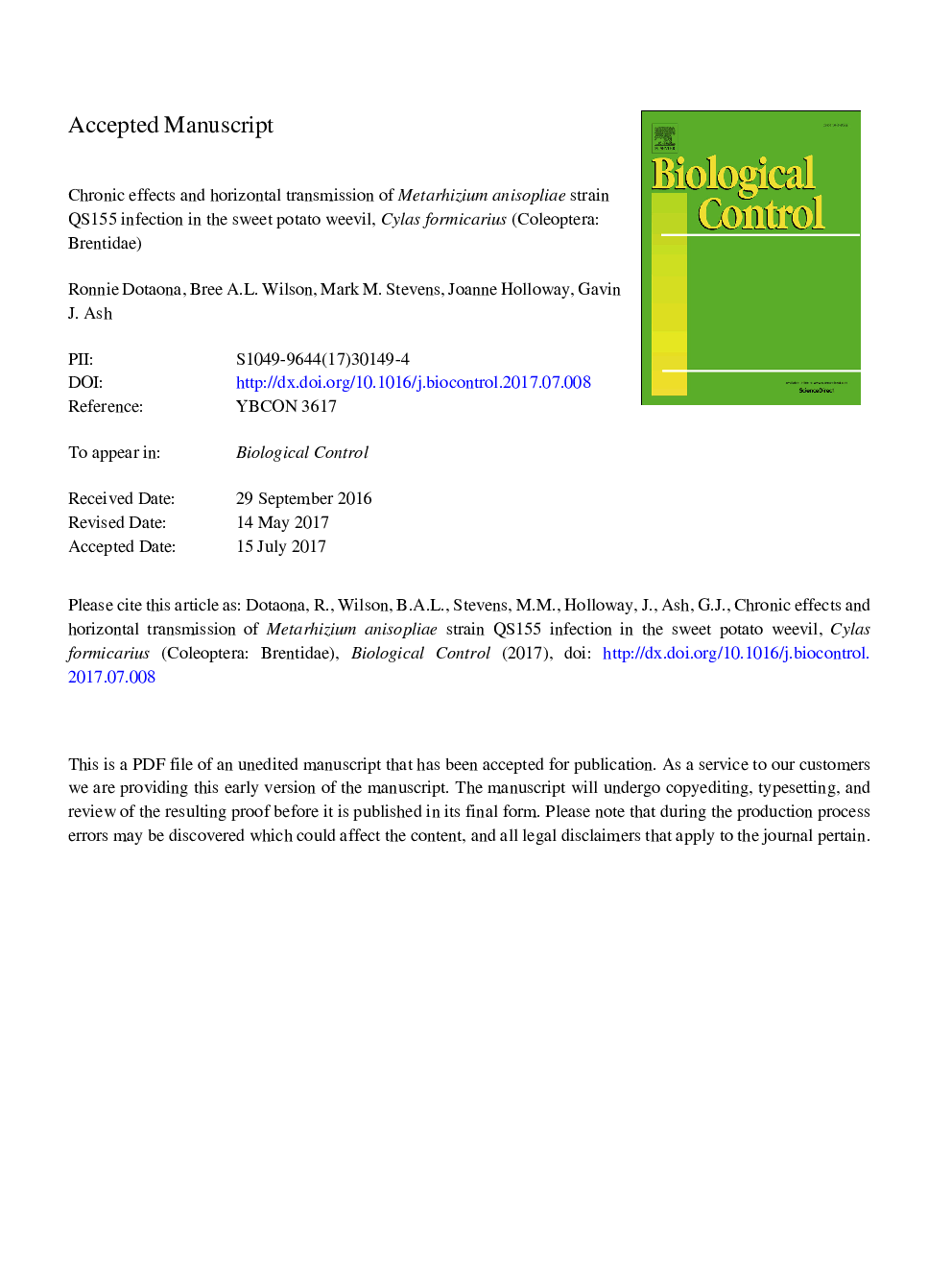| Article ID | Journal | Published Year | Pages | File Type |
|---|---|---|---|---|
| 5760721 | Biological Control | 2017 | 26 Pages |
Abstract
Cylas formicarius is a major pest of sweetpotato in Papua New Guinea. In this study, the chronic effects of infection with Metarhizium anisopliae strain QS155 in adult C. formicarius were investigated. Female fecundity was significantly reduced in treatments where females were infected directly and maintained in pairs with either infected or uninfected males, and to a statistically equivalent level (51%) when initially uninfected females were caged with infected males. A significant increase in the proportion of eggs left exposed outside the host plant occurred in response to either direct or indirect maternal exposure to M. anisopliae. The hatchability of eggs fully enclosed by host plant tissues was also significantly reduced by exposure of females to M. anisopliae; together these factors led to a total decline in reproductive success of 69%-80%. These results demonstrate that a conidial concentration of M. anisopliae strain QS155 well below that required for rapid host mortality adversely affects reproductive and behavioural traits in adult C. formicarius. When groups of C. formicarius were held together for 12Â days after either all males, all females, or just a proportion of males were initially inoculated, clear evidence of horizontal transmission was obtained. In both males and females mortality arising from horizontal transmission was statistically equivalent to mortality levels when individuals of the same sex had been directly infected. Exposure to sporulating adult cadavers also caused significant mortality to uninfected SPW adults, and M. anisopliae was recovered from weevils that died following exposure to infected cadavers.
Related Topics
Life Sciences
Agricultural and Biological Sciences
Agronomy and Crop Science
Authors
Ronnie Dotaona, Bree A.L. Wilson, Mark M. Stevens, Joanne Holloway, Gavin J. Ash,
